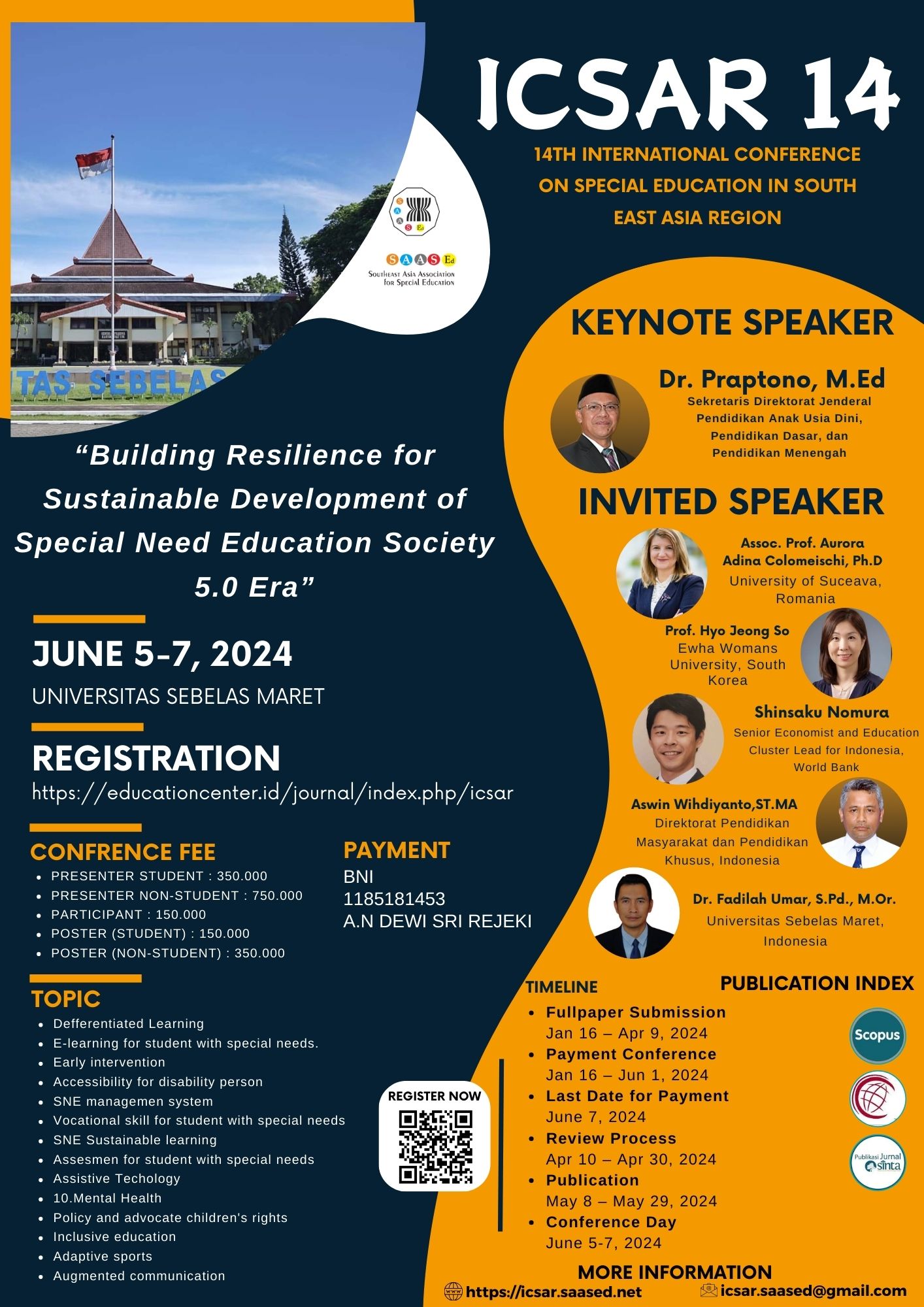Inclusive Education in Early Childhood: Assessing Implementation in Pekanbaru Through The Ainscow Inclusion Index
DOI:
https://doi.org/10.57142/picsar.v3i1.443Keywords:
Inclusive Education, Early Childhood, Index InclusionAbstract
The implementation of inclusive education in Indonesia since 2002 has provided opportunities for all students, including those with special needs, to receive education in their nearest schools. Indonesian government regulations explicitly state that schools cannot reject students due to their disabilities. Consequently, schools across Indonesia, including those in Pekanbaru, have begun admitting students with special needs. However, challenges arise as the implementation of inclusive education varies among schools based on their understanding and perceptions. Therefore, this research aims to analyze the extent of inclusive education implementation at the preschool level in Pekanbaru using the Ainscow Inclusion Index. This study analyzes 12 preschools in Pekanbaru in serving students with special needs, providing a comprehensive overview of the inclusive culture, policies, and practices in the city.
References
Agustina, R. S., & Rahaju, T. (2021). Evaluasi Penyelenggaraan Pendidikan Inklusif Di Kota Surabaya. Publika, 9(3), 109–124. https://doi.org/10.26740/publika.v9n3.p109-124
Aprima, D., & Sari, S. (2022). Analisis Penerapan Pembelajaran Berdiferensiasi Dalam Implementasi Kurikulum Merdeka Pada Pelajaran Matematika SD. Cendikia: Media Jurnal Ilmiah Pendidikan, 13(1), 95-101. https://doi.org/10.35335/cendikia.v13i1.2960.
Clattenburg, C. (2003). A field guide to the slow learners. Redwood City Special Education Department for Teachers, Parents and the Community.
C Aprinastuti et al. (2020). Development of mathematics manipulative for slow learner and dyscalculia student in elementary school by using Montessori’s characteristic. Journal of Physics: Conference Series. doi:10.1088/1742-6596/1663/1/012065.
Damastuti, E. (2021). Teachers’ Ability in Identifying Children with Low Academic Achievements in Inclusive Education. JPPPLB, Volume 8, Number 2, December 2021: 1-7
Febrianti, Putri V. (2023). Analisis Kesulitan Guru Biologi SMAN 2 Pandeglang dalam Mengimplementasikan Pembelajaran Terdiferensiasi. Jurnal Pembelajaran Inovatif, 6(1), 17 - 24. https://doi.org/10.21009/JPI.061.03
Gouwens, D. A. (2002). Slow learners: A guide to academic interventions for parents. Helping Children at Home and School II: Handouts for Families and Educators. National Association for School Psychologists, 175-178.
Haider, S. I. (2008). Pakistani teachers’ attitudes towards inclusion of students with special educational needs. Pakistan Journal of Medical Science, 24(4), 632-636.
Kaznowski, K. (2004, Dec). Slow learners: Are educators leaving them behind? National Association of Secondary School Principals, NASSP Bulletin, 88, 31-45.
Korikana, A. (2020). Slow Learners: A Universal Problem and Providing Educational Opportunities to Them to be A Successful Learner. PEOPLE: International Journal of Social Sciences, 6(1), 29-42.
Purbasari, Y. A., Hendriana, W., & Yoenanto, N. H. (2022). Perkembangan implementasi pendidikan inklusi. Jurnal Pendidikan, 7 (1), 50-58.
Rahim, A. (2016). Pendidikan inklusif sebagai strategi dalam mewujudkan pendidikan untuk semua. Trihayu: Jurnal Pendidikan Ke-SD-An, 3(1), 68–71.
Susilo, Y. & Prihatnani, E. (2022). Scaffolding for Slow Learner Children on Integer Operations. Jurnal Matematika Kreatif-Inovatif. UNNES.
U Khaira and T Herman (2020). Assessment processes for slow learners in mathematics learning. Journal of Physics: Conference Series. doi:10.1088/17426596/1521/3/032097.
Widiastuti, Y., Rani, A., & Wahyuni, S. (2023). Implementasi dan asesmen pembelajaran berdiferensiasi pada materi anekdot untuk siswa SMA. Semantik, 12 (1), 61-74. DOI: https://doi.org/10.22460/semantik.v12i1.p61-74
Downloads
Published
How to Cite
Issue
Section
License
Copyright (c) 2024 Proceeding of International Conference on Special Education in South East Asia Region

This work is licensed under a Creative Commons Attribution 4.0 International License.





